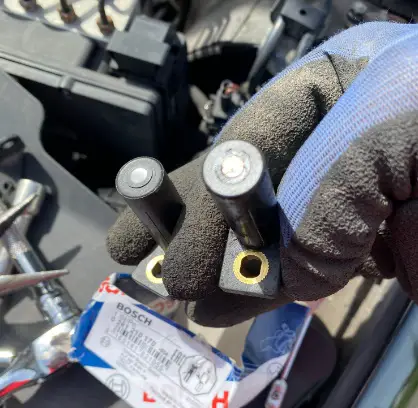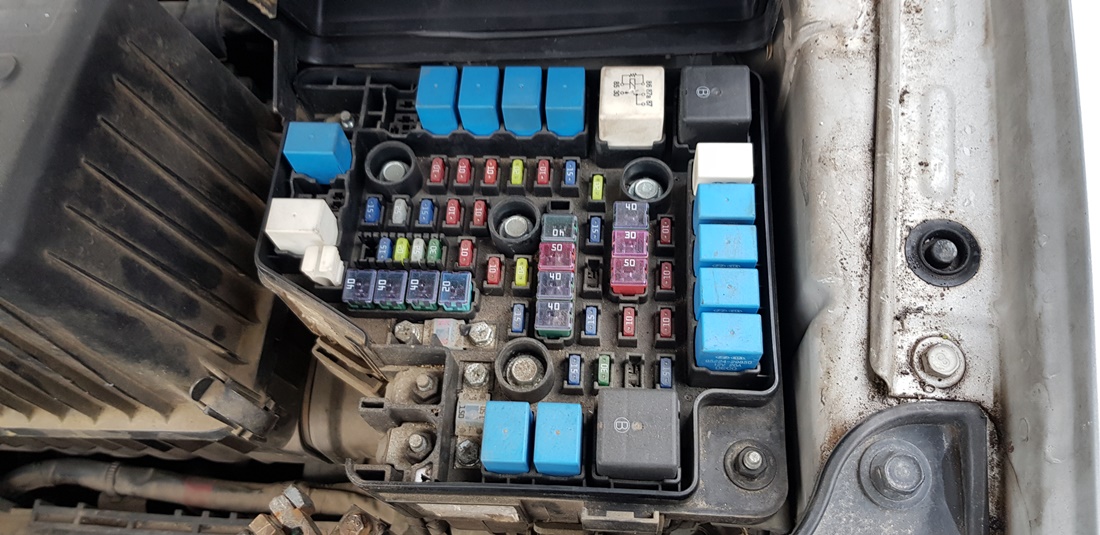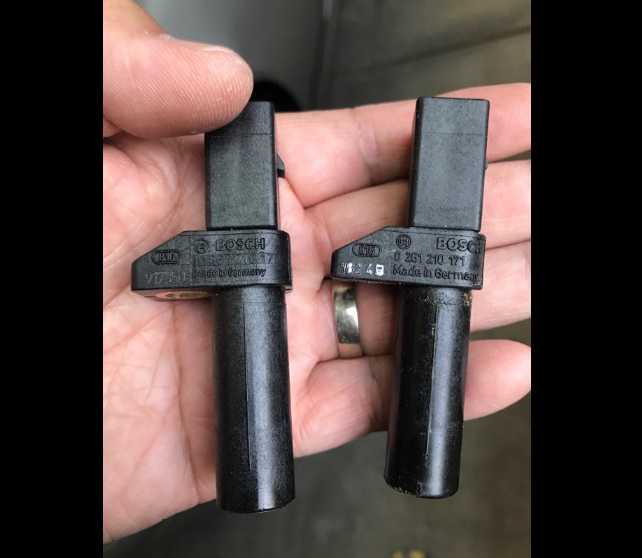There is a myth going on the internet that synthetic oil is bad for older cars. Not sure who started the rumors, but I will do my best to end them.
Synthetic oil is actually not bad for older cars and older engines. Synthetic oil can only prolong the life of an old engine that has wear and tear.
Read on as I go into detail about why synthetic oil is not bad for older cars.
Key Takeaway
- Synthetic oil is an artificially engineered lubricant made through chemical processes that provides superior performance and protection for modern engines.
- The use of synthetic oil in older cars can present some risks such as potential engine leaks or increased oil consumption due to compatibility issues.
- The best oil for older cars is generally a multi-grade oil such as SAE 30 to SAE 50, but it is important to consider the specific needs of the vehicle and its mileage.
What is Synthetic Oil?
Synthetic oil is an artificial lubricant that is specifically engineered to provide superior performance and protection for modern engines.
Unlike conventional motor oils, which are derived from crude oil, synthetic oils are made through a complex process of chemically modifying and refining petroleum-based compounds or by synthesizing them from other chemical compounds.
This process allows synthetic oils to have a more consistent molecular structure, resulting in better resistance to oxidation, higher viscosity index, improved low-temperature flow, and enhanced lubricating properties.
Synthetic oils also contain fewer impurities and offer better thermal stability, which helps reduce engine wear, increase fuel efficiency, and extend the overall lifespan of the engine says Machinery Lubrication.
How Bad Is Synthetic Oil For Older Cars

The use of synthetic oil in older cars can potentially cause engine leaks or increased oil consumption.
Synthetic oils have cleaning properties and can dissolve sludge which could cause internal leaks.
The use of synthetic oil in older cars can be a topic of debate among mechanics and car enthusiasts.
While some caution against switching to synthetic oil in older vehicles, citing potential risks such as engine leaks or increased oil consumption, others argue that modern synthetic oils can be safely used in older engines without causing these issues.
Ultimately, the decision to use synthetic oil in an older car should consider factors such as the specific engine condition, manufacturer recommendations, and individual preferences.
What Are The Risks of Switching To Synthetic Oil In Older Cars?
- Engine leaks: Synthetic oils have different chemical properties compared to conventional oils, which can potentially cause seal shrinkage or degradation in older engines, leading to oil leaks.
- Increased oil consumption: Older engines may have worn seals or gaskets that were designed for thicker conventional oil. Switching to a thinner synthetic oil can increase oil consumption, as it may pass through these worn components more easily.
- Compatibility issues: Some older engines, particularly those with certain materials or design features, may not be compatible with synthetic oils. It’s important to refer to the vehicle manufacturer’s recommendations or consult with a trusted mechanic to ensure compatibility.
- Cost: Synthetic oils tend to be more expensive than conventional oils. Switching to synthetic oil in an older car may result in higher maintenance costs, especially if the engine experiences any of the potential issues mentioned above.
- Limited benefits: Older engines may not fully realize the performance advantages of synthetic oil due to their design limitations. The additional cost of synthetic oil may not provide significant benefits in terms of engine protection or longevity compared to using a high-quality conventional oil.
- Lack of historical data: Synthetic oils have been widely used for several decades, but their long-term effects on older engines are not as extensively documented as conventional oils. This lack of historical data might make some owners hesitant to switch.
What Oil Is Best For Older Cars?
Many experts suggest using multi-grade oils such as 5W-30 or 10W-30, depending on the time of year.
These oils are commonly used and offer good performance for older vehicles.
Additionally, it’s important to avoid lighter oils like 0W-20, 5W-20, and 5W-30, which are typically used in newer cars.
For high-mileage engines, synthetic oil blends with additives can be beneficial, providing extra protection and cleaning properties.
Some recommended brands for older cars include Castrol GTX synthetic motor oil, Pennzoil High Mileage, and Lucas Oil 20W50 Classic.
Can Synthetic Oils Cause Leaks In Old Cars

Synthetic oils can cause leaks in old cars. Synthetic engine oil has a higher concentration of dispersants, detergents, and other cleaning elements which can remove any sludge or gunk buildup that could be acting as a seal and cause a leak in old cars.
Moreover, synthetic oils have more cleaning power and will remove built-up sludge and gunk within your engine exposing leaks. But, cleaning your engine is never a bad thing. Keeping an engine clean is never a bad thing especially if you have sludge or gunk building up.
That sludge can plug up oil drain holes which leads to more sludge forming on the top end of your engine which then makes your engine hot and can lead to overheating.
If your engine leaks oil, that is an issue that has to be addressed as soon as possible. There’s probably a failed seal. But, sludge and gunk building up around the seal that failed is not a solution. It’s just another problem. Using sludge as the solution would mean causing your engine to fail sooner so that it doesn’t leak oil.
Should You Switch To Thicker Oil If Your Car Is Consuming Oil
You should switch to thicker oil if your older car is consuming oil. The general rule is to always use the viscosity your car manufacturer recommended.
But, as we all know, engines don’t last forever. As your engine gets older, the clearances within the engine change due to wear and tear, and your car could start to consume oil. Once your older car starts to consume oil, you should switch to a thicker oil.
Let’s say you have an old car and there are quite a lot of miles on it. While you’re sitting idle you have relatively low oil pressure and the oil pressure light comes on. The oil that you have been using so far may have been fine for maintaining oil pressure.
But, as the clearance within the engine increases due to wear and tear there is more space and the oil might be too thin to maintain pressure in the wider areas. So, using a thicker oil could prolong the life of the engine.
The important thing here is understanding that you shouldn’t proactively switch to a thicker grade oil without any signs that your engine is old, worn, and burning oil. Bumping up an oil grade should be thought of as a last-ditch effort to prolong the life of an engine that’s clearly on its way out.
The thicker oil could help, but it’s not going to change the fact that your engine has significant wear. Higher viscosity oils also tend to have lower volatility which means less of the oil burns off over time.
As far as an engine that’s leaking oil, changing to a thicker oil isn’t addressing the fact that the engine seals have failed and are leaking oil.
When Should You Use a High Mileage Oil?
Once your engine starts to wear and is burning excessive oil or leaking oil, you should switch to high-mileage engine oil. The high mileage engine oil has a seal swelling agent which serves the purpose of reconditioning engine seals as they harden over time.
Over time, the engine seal can harden, shrink, and lose its elasticity. The swelling agent in the high-mileage oil is designed to recondition that seal so that less oil makes its way past. Now, this doesn’t mean the seal is permanently fixed.
If your engine’s issue is a broken seal, then the ultimate fix is replacing that seal. But, a high mileage oil can help prolong the seal’s useful life if it has started to deteriorate. You can try and swell an old seal back to its original state. But, obviously, you wouldn’t want to proactively try to swell a brand-new seal.
If for some reason you were to start using a high mileage oil early, it’s not going to harm your engine as long as you can see it meets all of the required industry tests.
A common spot where a failed seal can cause you to burn a lot of engine oil is the valve stem seal. These seals prevent oil from within the cylinder head from entering your intake manifold. If the seal deteriorates or fails, the oil will drip down onto the intake valves. Then it will move into the combustion chamber along with the intake air and burn up in the engine.
FAQs
Q: What is synthetic oil?
A: Synthetic oil is an artificially made lubricant that is designed to provide better performance and protection for engines compared to conventional oil.
Q: Can I use synthetic oil in an older car?
A: Yes, you can use synthetic oil in older cars. In fact, using synthetic oil in older cars can provide several benefits such as improved engine cleanliness, better wear protection, and increased fuel efficiency.
Q: Is synthetic oil bad for older cars?
A: No, synthetic oil is not bad for older cars. In fact, synthetic oil can help older cars perform better and last longer by reducing friction, preventing sludge buildup, and improving overall engine cleanliness.
Q: Should I switch to synthetic oil?
A: Switching to synthetic oil is a personal choice. However, if you are looking for improved engine performance, extended oil change intervals, and better protection for your engine, switching to synthetic oil may be beneficial.
Q: What are the benefits of using synthetic oil in older cars?
A: Some benefits of using synthetic oil in older cars include better engine protection, reduced engine wear, improved fuel efficiency, and longer-lasting oil change intervals.
Q: Will using synthetic oil in an older car cause leaks?
A: Using synthetic oil in an older car will not cause leaks. In fact, synthetic oils are specifically formulated to be compatible with seals and gaskets, and they provide better protection against leaks compared to conventional oils.
Q: Can synthetic oil help prevent engine sludge?
A: Yes, synthetic oil can help prevent engine sludge. Synthetic oils have better detergent properties compared to conventional oils, which helps keep engine components cleaner and reduces the formation of sludge and deposits.
Q: Can I mix synthetic oil with conventional oil?
A: It is generally not recommended to mix synthetic oil with conventional oil. Mixing different types of oils can result in reduced performance and may not provide the same level of protection as using one type of oil consistently.
Q: Is synthetic oil better for high-mileage older cars?
A: Yes, synthetic oil is often recommended for high-mileage older cars. Synthetic oils have properties that can help reduce engine wear and provide better protection for engines with higher mileage.
Q: Can I put synthetic oil in a classic or vintage car?
A: Yes, you can put synthetic oil in a classic or vintage car. Synthetic oils offer benefits such as improved engine protection, reduced wear, and better performance, which can be beneficial for classic or vintage cars.
In Conclusion
In conclusion, it is important to consider the age of your car when choosing synthetic oil.
While synthetic oil offers tremendous benefits for newer cars, it may not offer the same protection and performance for older models due to their aging components.




